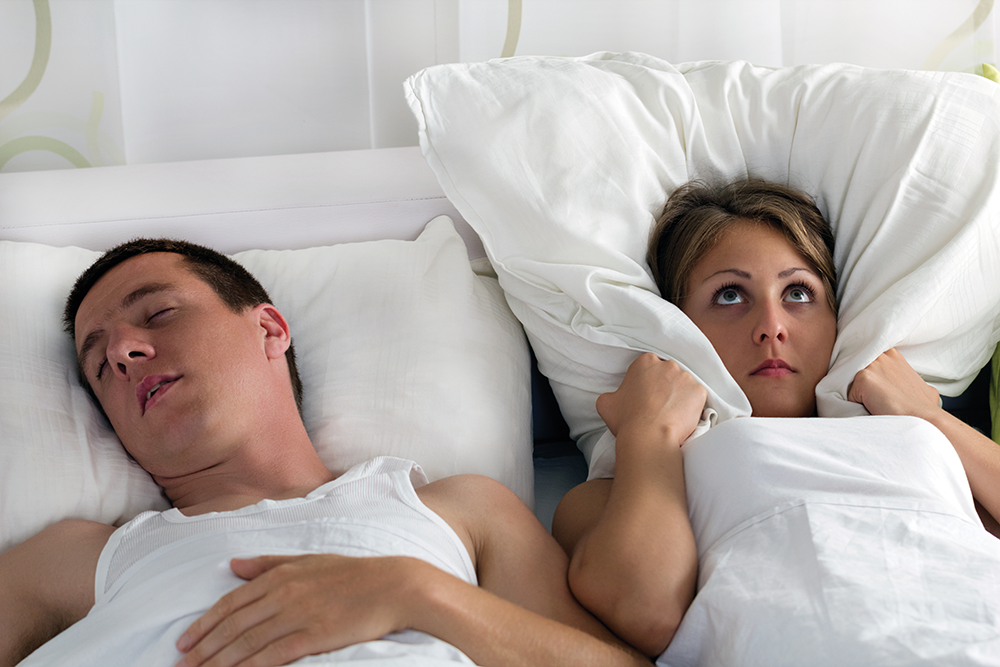The Effects of Snoring Go Beyond Heart Disease
 As we discussed previously, poor sleep impacts inflammation, hypertension, and attention deficit. In this third part of our three-part series on sleep and heart disease, we look closer at the effect of snoring on health with leading alternative health expert Bryce Wylde.
As we discussed previously, poor sleep impacts inflammation, hypertension, and attention deficit. In this third part of our three-part series on sleep and heart disease, we look closer at the effect of snoring on health with leading alternative health expert Bryce Wylde.
The effects of snoring on relationships
The effects of snoring goes well beyond inflammation, hypertension, and attention deficit. The U.S. National Sleep Foundation reports that 90 million Americans are affected by snoring (about 28% of the population). That’s a lot of zzzs! Further, a study by the National Sleep Foundation found that about 24% of couples sleep in separate rooms because of snoring, and many couples who sleep separately are reluctant to discuss it. This is causing a lot of strain on relationships – often even to the point of separation – even, ultimately, contributing to divorce!
In fact, the National Sleep Foundation found that more than a third of respondents admit that their partner’s disruptive sleep habits have affected the quality of their relationship. Two in five (17-23%) indicated that their intimate/sexual relationships had been affected because they were too sleepy. Another 51-62% agreed that not getting enough sleep impacts their relationships with family or friends.
It turns out one of the number one undiagnosed causes of sleep interruption is indeed snoring and subclinical apnea. This is a problem for both parties of a relationship. To complicate matters, it is a common attitude that “nothing could possibly be done about snoring”. This often stops couples from taking care of this issue so that it doesn’t end up causing so many repercussions.
Sleep deprivation and weight gain
Of course, I would be remiss if I didn’t discuss the impact of too little sleep on weight gain! If you’re wondering why your recent efforts at the gym and eating clean haven’t been working as well as you’d hoped, you should know that sleep and metabolism control are found in the same area of the brain. When you are sleep deprived, your hunger hormones go way up. If you are trying to lean up, you need to ensure you get 7-8 hours of deep restful sleep. When you don’t get enough sleep, you lose muscle mass, according to research conducted at the University of Chicago.
A study in the American Journal of Clinical Nutrition found that when people were starved of sleep, late-night snacking increased, and they were more likely to choose high-carb snacks. It turns out that if you’re sleepy, you crave the wrong foods and have a harder time saying “no”.
Here is another shocker: Driving Under Drowsiness (DUD) for just one night can be as detrimental to your driving ability as having an alcoholic drink (DUI)! Sleep deprivation causes impaired reaction time and decision making. According to The National Highway Traffic Safety Administration, being tired accounted for the highest number of fatal single-car crashes due to the driver’s performance. It turns out that is even more than alcohol!
All the best,
Lisa Nelson RD
Health Pro for HealthCentral
Part 1: Sleep Deprivation and Heart Disease
Part 3: How to Obtain a Quality Nights Sleep for Optimal Heart Health



